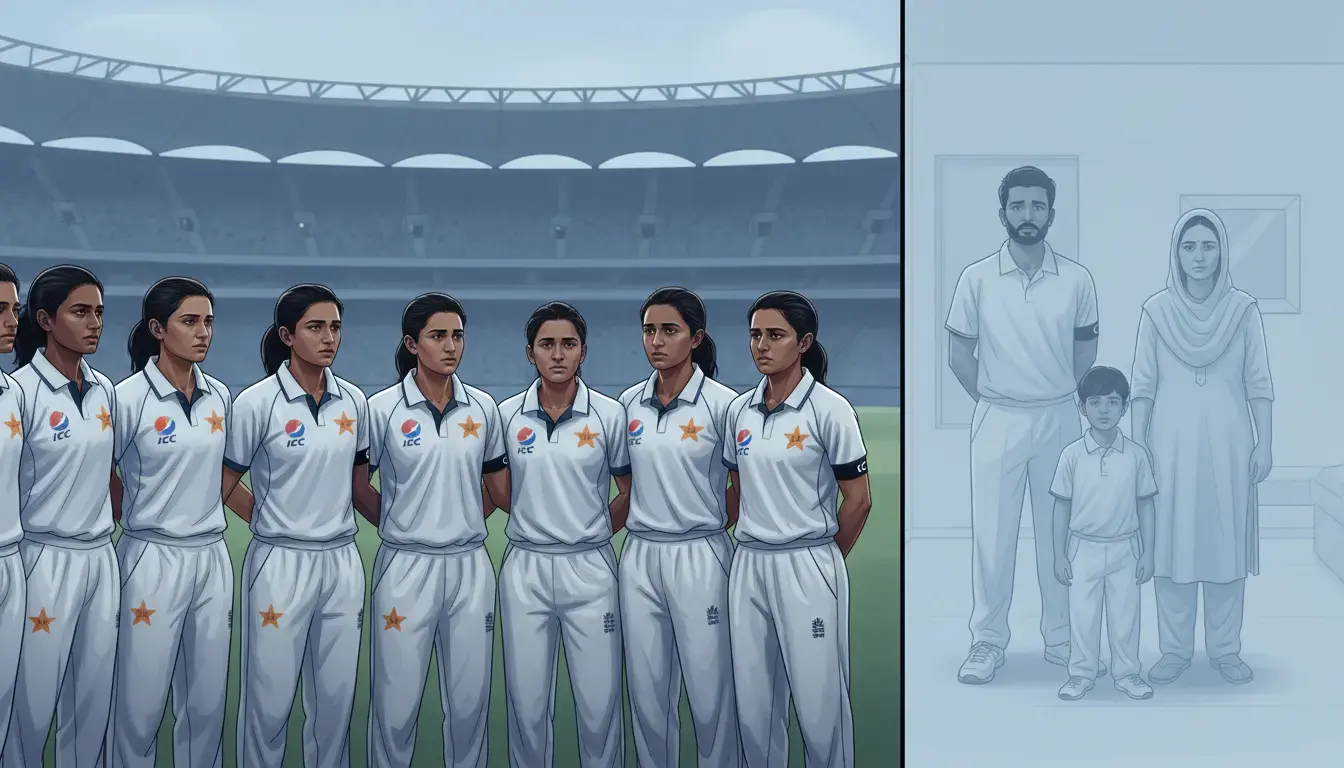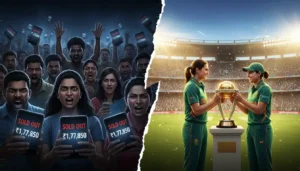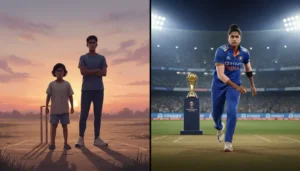Can you imagine playing the biggest tournament of your life, then getting devastating news? That’s exactly what 20-year-old Pakistan squad member, Shawaal Zulfiqar, faced. On Wednesday, October 15, 2025, during the ICC Women’s World Cup ODI match in Colombo, both the Pakistan and England women’s cricket teams stood in a profound moment of silence, a touching tribute after Shawaal’s father, Zulfiqar Ahmad, tragically passed away in Sialkot, Pakistan, on Tuesday, October 14, 2025.
Key Takeaways
- Pakistan and England women’s teams observed a moment of silence at the ICC Women’s World Cup 2025 in Colombo.
- This powerful gesture honored Zulfiqar Ahmad, father of Pakistan’s Shawaal Zulfiqar, who passed away on Tuesday, October 14, 2025.
- Despite the immense personal loss, 20-year-old Shawaal Zulfiqar made the incredibly brave decision to remain with her squad in Sri Lanka.
- The Pakistan team also wore black armbands during the match as a mark of respect and solidarity.
- The ICC shared this poignant moment on social media, underscoring the deep human connection in professional sports.
A Moment That Stopped the Game
Look, sports can be tough, right? But sometimes, something happens that reminds you it’s about so much more than just the game. Before their crucial ICC Women’s World Cup ODI match in Colombo, the air grew incredibly still. Both the England and Pakistan teams, rivals on the field, stood side by side, united in a moment of silence.
The scoreboard might’ve been ticking, but for those precious seconds, it didn’t matter. This wasn’t just a formality. It was a heartfelt tribute to Zulfiqar Ahmad, the father of Pakistan’s young talent, Shawaal Zulfiqar. He had passed away in Sialkot just the day before.
Shawaal’s Unwavering Resolve
But here’s the thing that truly blew everyone away. Shawaal Zulfiqar, a mere 20 years old, made an almost unfathomable decision. Despite the crushing news of her father’s passing, she chose to remain with the Pakistan squad in Sri Lanka. Can you even imagine that strength?
Get the Latest Updates
Be part of our sports community for daily news, expert analysis, and insider info.
Her teammates, showing immense support, weren’t just observing silence. They also wore black armbands during the match. It was a visual reminder of their solidarity and respect for Shawaal and her family during such a devastating time.
The Global Response
This isn’t just a story about cricket; it’s about humanity. The International Cricket Council (ICC) themselves recognized the gravity of the moment. They took to social media, sharing this powerful display of sportsmanship. And honestly, it resonated with millions.
It highlighted something profound: even at the highest levels of competitive sport, there’s a deep network of empathy and support. This wasn’t about runs or wickets. It was about shared grief and unwavering human connection.
Social Media Storm
The internet, as it always does, erupted with messages of support. Fans from both Pakistan and England, and indeed from around the world, praised the teams. Hashtags trending included #CricketFamily and #Respect, showing a global outpouring of sympathy for Shawaal. People shared stories, expressing how much this gesture meant, extending far beyond the cricket pitch.
Beyond the Boundary: Expert Analysis
This incident, as poignant as it is, really underscores the human dimension behind professional sports. Experts are pointing out how critical these support systems are within the cricket community. It proves that despite the pressure to perform, compassion remains a core value.
It’s a stark reminder that athletes, even at the peak of their careers, are still individuals facing real-life struggles. And the way their peers and organizations respond speaks volumes about the sport’s character. This kind of solidarity builds stronger bonds, not just between players, but with fans too.
So, what does this all mean for the ICC Women’s World Cup 2025? It means that while the competition is fierce, the spirit of sportsmanship and community still shines brightest. Shawaal Zulfiqar’s courage, and the teams’ respect, will undoubtedly leave an indelible mark. It truly shows that some moments are far bigger than the game itself. How do you think this will impact the rest of Pakistan’s World Cup campaign?




